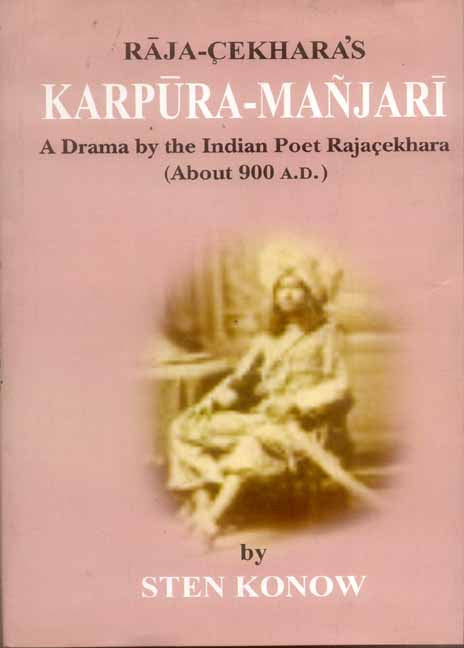Karpura-Manjari of Raja-Cekhara: A Drama by the Indian Poet Rajacekhara (About 900 A.D.)
Karpura-Manjari of Raja-Cekhara: A Drama by the Indian Poet Rajacekhara (About 900 A.D.) is backordered and will ship as soon as it is back in stock.

Karpura-Manjari of Raja-Cekhara: A Drama by the Indian Poet Rajacekhara (About 900 A.D.) is backordered and will ship as soon as it is back in stock.
Raja-Cekhara has been highly esteemed for his proficiency in the Prakrit. This volume presents the first critical edition of the only Prakrit Drama extant, for here none of the characters speak Sanskrit. The interest of the play is largely philological, likely to throw light on the linguistic History of India, though, not without its importance for the History of the Indian Drama. It abounds in material which may well engage the attention of the student of Antiquities and Folk-lore. The Sacred Scriptures of the Jaina Religion are written in Prakrt. And, considering the extreme dearth of books for students of that tongue, it is hoped that this volume, in connection with Jacobi's Handbook, may prove highly serviceable as an introduction to the language of that very ancient religion. The chief aim of this edition is a linguistic one and the vocabulary is composed with the aim to serve students learning Prakrt. The Karpura-Manjari Contains four Acts called Javanikantara. It tells us how the king Candapala marries Karpura-Manjari contains four Acts called Javanikantara. It tells us how the king Candapala marries Karpura-manjari, the daughter of the Kuntala King, and thus becomes a paramount sovereign. The jealousy of the queen, and the machinations that bring the king and the heroine together, from the plot of the Play, the Adbhuta Rasa is represented by the sorcerer Bhairvananda and his tricks. It is an earlier play of the poet and was not , like his other plays, acted at the request of the king, but by the wish of the poet's wife Avantisundari.
Review(s)
About the Author(s)
-
Pages
-
Edition
-
Size
-
Condition
-
Language
-
Weight (kg)
-
Publication Year
-
Country of Origin
-
Territorial Rights
-
Reading Age
-
HSN Code
-
Publisher




